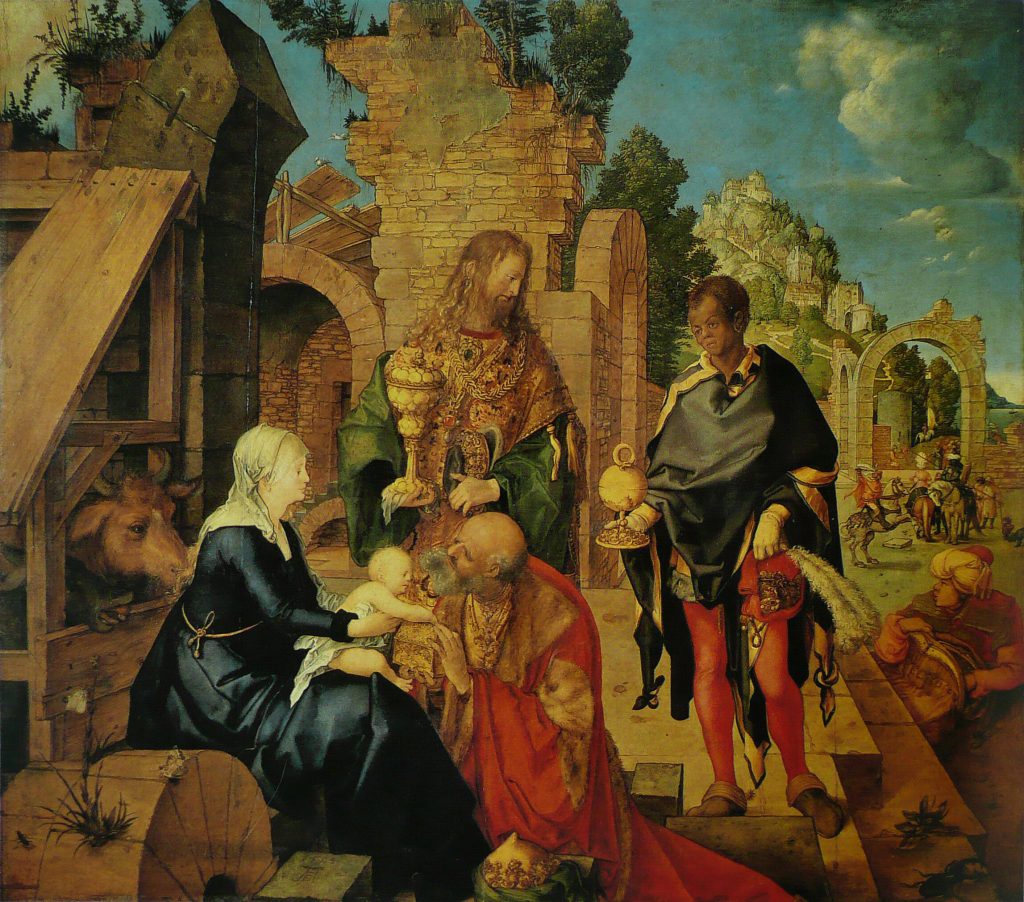Mystical Turkish delight
01.05.2018Could an innocent pistachio loukoum (Turkish delight) conceal the gateway to Divinity? The novel written by Michel Tournier dedicated to the Magi, Gaspard, Melchior and Balthazar, is a scholarly parable about a journey that initially conceals a spiritual destination.
The author notes in an appendix to his novel that the story of the three wise men is barely mentioned in the Gospel according to St Matthew. The number three was was deduced from the number of presents laid at the feet of the newborn Messiah: gold, frankincense and myrrh. Everything else, starting with their names, was the fruit of legend and of apocryphal texts. The subject was virgin territory for this great novelist of myths, who when listening to German radio one fine morning in January 1979 heard a pastor mention a probable fourth King from India… It was probably Russian legend, but the writer had enough (i.e. nothing) and therefore could invent everything.
The subject matter is the adoration of the Magi, three people laden with gold and draped in purple, journeying from a fabulous Orient to prostrate themselves in a miserable stable before an infant to be joined by a fourth, Prince Taor from the principality of Mangalore on the coast of Malabar.
The legendary three Kings, Gaspard, Balthazar and Melchior (in the order in which they are mentioned in the novel) were all spurred on their journey by a strange comet with a golden tail that they followed until they reached the infant Jesus in his crib. But none of them had the latter in mind. Each one was on a personal odyssey and fleeing disillusion in favour of pipe dreams: love for Gaspard, art for Balthazar and political sovereignty for Melchior, unjustly deprived of his right to rule.
There is no comet for Taor, a chubby, idle, sweet-toothed Prince whose mother ruled on his behalf. For him, sugar was the meaning of life. One day he would taste « […] a soft, jelly like, square confection covered in a dusting of white powder » sent from a far flung country in the orient to Western Asia. The suave delicacy of this loukoum would now take on the role of the comet. So off he went at huge cost with ships, teams of servants and elephants towards the Middle East on a quest for the loukoum recipe! But before long « Taor could no longer hide behind the ridiculous reason for his trip […] as he now became aware of a mysterious and profound purpose that vaguely resonated with him but which went right over his head […] » This pleasant, frivolous sugar trail quest will reveal itself to be a long journey of initiation that will make him come to terms with his condition and understand compassion, poverty and extreme personal sacrifice, all crowned by a Eucharistic light at the very end of the test.
This glutton for confection would find himself imprisoned in a salt mine for thirty-three years. By ironic coincidence, he would learn the famous recipe from a fellow prisoner, a recipe based on gum tragacanth, « a chest paste for apothecaries, brilliantine for hairdressers, prep for launderers, and a jelly for pastry chefs. But it would find its blaze of glory in rahat loukoum » the prisoner confides.
More to the point, it was the quest for a dish to satisfy his vice that would put him on the path to spiritual nourishment that would quell all hunger pangs. Just as Gaspard’s quest for love would take him to a love so great that it would wipe out all his possessive male impulses and Balthazar’s search for an iconographic ideal would bring him face to face with a beauty that confuses the image and the resemblance in a new humanity and Melchior’s desire to reign in his country would lead him to discover the grubby aspects of power which he would spurn for his inner empire and a reign of peace.
So many odysseys, so many butterflies being chased that are only the face shown to each person to put the soul on the path of spiritual ascension.


